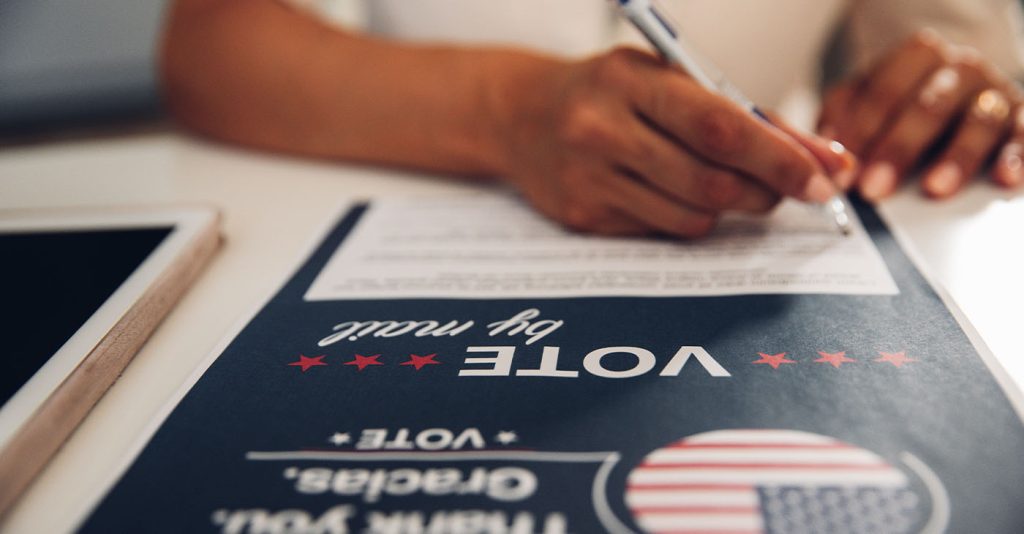Since the landmark Voting Rights Act of 1965, Republicans have worked relentlessly to chip away at protections for voters — particularly Black Americans, other people of color, and women. Those efforts reached a fever pitch after Barack Obama’s historic victories in 2008 and 2012, which sparked what many observers say was the modern white supremacist movement and reignited GOP efforts to suppress the vote. Now, with Donald Trump’s return to the White House and Republicans emboldened by a far-right agenda, the House has passed one of the most aggressive voter suppression bills in decades — the so-called SAVE Act, or “Safeguard American Voter Eligibility Act.” The legislation, passed by a 220–208 vote, would require in-person documentary proof of citizenship to register to vote — a move voting rights experts warn will disenfranchise millions of eligible voters, especially women and people of color. What’s more, four Democrats — Jared Golden, Marie Gluesenkamp Perez, Henry Cuellar, and Ed Case — broke ranks and supported the bill.
Trump, who once promised on the campaign trail that his supporters would never have to vote again, now appears to be halfway to delivering on that threat. The SAVE Act, introduced by Rep. Chip Roy of Texas, would amend the National Voter Registration Act to require in-person citizenship verification using documents such as a birth certificate, passport, or naturalization certificate. It would effectively end online and mail voter registration, severely restrict voter registration drives, and allow lawsuits against election officials who do not enforce the new rules. Voting rights advocates say this would create enormous hurdles for poor people, rural residents, Black Americans, naturalized citizens, and the nearly 70 million women whose current legal names differ from those on their birth certificates due to marriage. “This is a dangerous and unnecessary attack on voting rights that could block millions of eligible citizens from voting,” said Molly McGrath, director of the ACLU’s national democracy campaigns. “This isn’t about protecting voters or our elections. It’s about politicians who want to protect themselves and pick and choose their voters. But that’s not how democracy works.”
Critics also point out that it is already illegal for noncitizens to vote in federal elections — a crime punishable under law. Federal law mandates that registrants swear under penalty of perjury that they are citizens. Noncitizen voting is exceedingly rare, and courts have repeatedly blocked states from adding proof-of-citizenship requirements in federal races. The ACLU condemned the bill, citing its resemblance to a now-defunct Kansas law that purged more than 30,000 voters before it was struck down in federal court. The group urged the Senate to reject the measure, which they say would destabilize election administration and disproportionately impact naturalized citizens, Native American voters, first-time voters, and those with limited access to personal documentation. The Legal Defense Fund (LDF) also slammed the legislation. “The SAVE Act erects a discriminatory barrier to the ballot while pretending to ‘solve’ a problem that does not exist,” said Janai S. Nelson, President and Director-Counsel of LDF. “Its true purpose, rooted in fear of the multiracial democracy the United States can and must become, is to limit access to the ballot and stifle the political power of our increasingly diverse electorate.” Under the bill’s provisions, rural residents without access to government offices, married women whose identification does not match their birth certificates, and young voters without driver’s licenses would face some of the steepest barriers to registration. Studies show that only half of all Americans — and just one-third of Black Americans — hold valid U.S. passports. Nearly half of all Black Americans under 30 do not have a driver’s license with their current name and address. “The SAVE Act would cause nothing but harm to Black communities, rural communities, and so many others who would be stripped of their right to vote if it becomes law,” Nelson said.
The law’s potential effects extend beyond individuals. Voter registration drives, which have long played a crucial role in expanding access to the ballot in marginalized communities, would be all but destroyed. And with racial turnout disparities widening over the last decade, advocates say the stakes couldn’t be higher. Rep. Joe Morelle of New York, the ranking member of the House Administration Committee, denounced the bill. “My Republican colleagues crafted and passed one of the most damaging voter suppression bills in modern history. There’s no doubt that women, military members, and people of color will be disproportionately impacted,” he said. “The fight to stop this bill — to protect Americans’ sacred right to vote — is not over. I will do everything in my power to ensure every eligible American has access to the ballot box.” The Senate’s path forward on the SAVE Act remains uncertain. Sen. Mike Lee, R-Utah, has introduced a companion bill with 20 Republican co-sponsors. However, Senate Republicans would still need at least 60 votes to overcome a Democratic filibuster and send the bill to Trump’s desk.


